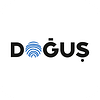Chapter One – Introducing User Experience
- UX Problems, Usability & User Centred Design
- Design Processes & Methodologies
- Common Methodologies
- Creating a Design-Friendly Process
- Usability Maxims
Chapter Two – The Strategy Plane
- Business Goals as Product Objectives
- Brand identity
- Success metrics
- The basic of user research and testing
- Psychology of User
- Understanding user needs with Interviewing, Card Sorting, Mental Model and User Personas techniques
- Designing for Different Experience Levels
Chapter Three -- The Scope Plane
- Technical Requirements
- Content Requirements
- Content Planning
- Scenario Mapping
- Journey Mapping
- Prioritise – MoSCoW
Chapter Four – The Structure Plane
- Understanding and the use of Navigation Patterns
- Focused Entry Points
- How to build an Information Architecture
- Understanding and the use of Conceptual Model
- Usability Concerns
- Design Patterns
- Stopping points
- User Journeys
Chapter Five – The Skeleton Plane
- Navigating Multiple Screens, Views or Pages, Tools and Menus
- How to improve Navigation
- The use of Sitemaps
- How to design for Interactions
- Understanding of design principles
- Interaction Flow
- Wireframing
- Different types of prototyping
Chapter Six – The Surface Plane
- Consistency and Standards
- Style Guides
- The user of colour
- Designing for different platforms
- Understanding of Metaphors, Idioms and Affordances
- The Building Blocks and Principles of Visual Design
Throughout the whole course, learners will be working with a case study to build toward a prototype (either paper or digital). Learners will also be conducting usability testing on the prototype either in the classroom or remotely.
























